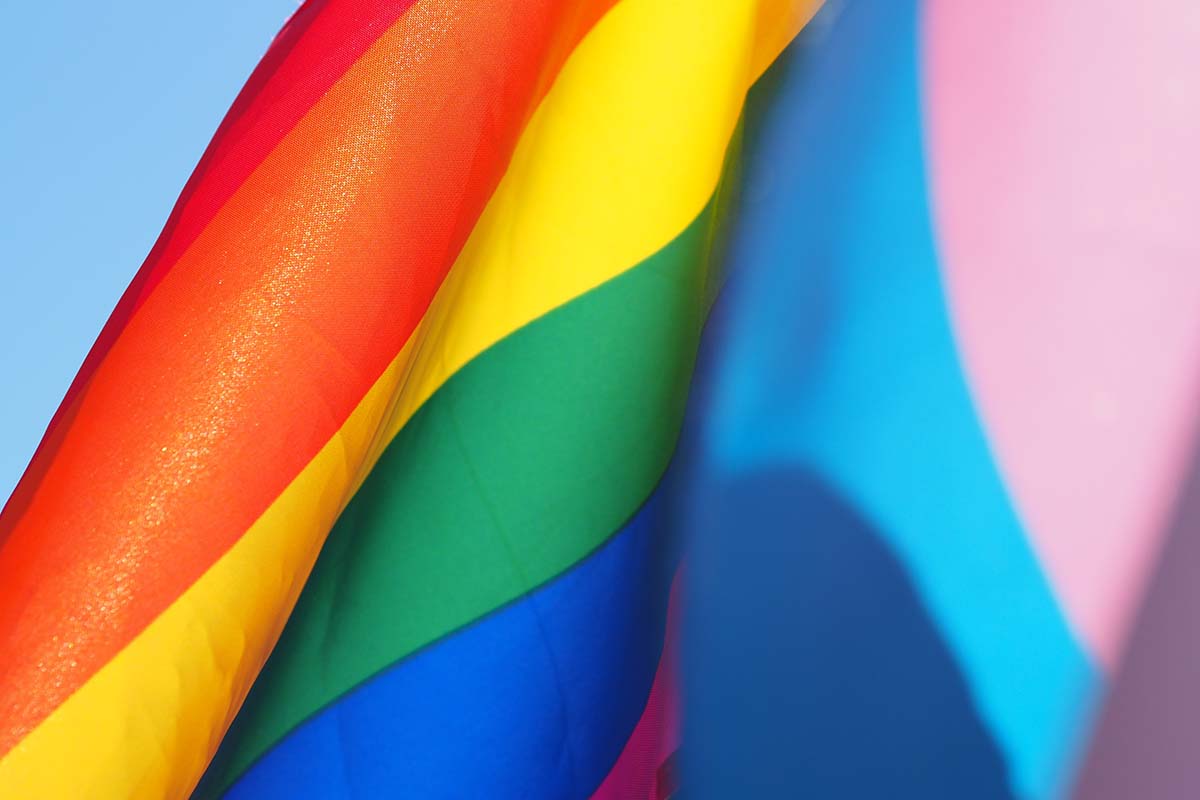 (Unsplash)
(Unsplash)
While Pride Month, held each June, is filled with many fun, lighthearted events such as parades, concerts and festivals, it is also a good time to learn more about LGBTQIA+ communities. One LGBTQIA+ group that is often neglected is transgender, nonbinary and gender-expansive people.
Mycall Riley, the university's LGBTQIA+ Resource Center coordinator in the Office of Multicultural Student Success, shares insights and expert information to help the DePaul community create safe, respectful and inclusive spaces for all.
What is your role at DePaul?
In my role as the LGBTQIA+ Resource Center coordinator, I have the honor to advocate for and support those who hold marginalized genders and sexualities across campus. This looks different depending on the day—from working with campus partners to chatting with students on exploring their gender identity.
Some may not be aware of marginalized genders and sexualities. Can you explain the differences between sex, gender and gender identity?
Absolutely but before I begin, I want to remind everyone that these terms and definitions are nuanced. They aren't as "fixed" as most people treat them.
-
Sex: The categorization of bodies by genitalia and other biological features. A person's sex is often assigned either male or female at birth. However, some people's sex is something outside these two categories, including but not limited to intersex individuals.
-
Gender: This is defined as various traits, characteristics and roles that a culture associates with or assigns to a physical sex. A classic example would be how many associate masculinity with emotionless thinking and femininity with being emotional.
-
Gender identity: This is the innermost concept of a person's sense of their gender and what they call themselves. This could align with gender expression, but that's not always the case.
Can you please define cisgender and transgender?
-
Transgender: Individuals who have an affirmed gender identity that is different than their sex assigned at birth. This term applies to a diverse group of gender identities and expressions. Trans is a common shorthand term for transgender.
-
Cisgender: This is an umbrella term for individuals whose sex, gender identity or gender expression fall within cultural norms and meet societal expectations based on their assigned sex at birth. It's really important to note here that this term is not the opposite of transgender because transgender identities are more than just the "opposite" gender.
Do the terms in the previous questions have anything to do with a person's sexual orientation or romantic attraction?
Not automatically! Cisgender and transgender identities are aligned with gender and not aligned with a person's sexual or romantic attraction. However, there can be unique connections.
Why is it so important to not assume a person's gender? For example, why is it vital to refer to someone by their correct pronouns?
Simply put, misgendering folks is harmful because it allows for trans and gender-expansive folks to be seen as jokes or as less of a person. It can make the person feel like "they are not important enough to remember," which is incredibly harmful. Furthermore, incorrectly assuming someone's pronouns also assumes someone's gender, which can lead to other marginalizing and harmful behavior.
Missteps will probably occur! We've all been socialized to assume gender. If you use the wrong pronouns when addressing someone, it's important to acknowledge your mistake and then work really hard to make sure it doesn't happen again.
What can DePaul's staff and faculty start doing today to help support the community?
So much! First off, it's important that everyone continue to educate themselves and others on this topic. This could be done by
joining our listserv or regularly revisiting DePaul's
LGBTQIA+ Resource Center programs and initiatives.
The one thing I want everyone to understand is that there is a lot of diversity within LGBTQIA communities. Each community has a different set of needs and experiences. For example, the experiences and needs of Black, trans women with disabilities will be different than that of white, cis, gay men.
What resources and trainings are available to learn more about these topics?
I offer a few different training courses throughout the year, including the Trans in the Classroom training and Trans Identities 101. If you, your team, department or college would like an individualized workshop, please
let me know. I hope more folks continue to reach out.
We also partnered with the Office of Gender Equity to create a training about existing policies to continue building awareness on how OGE intersects in terms of discrimination and harassment.
If there is one thing you want readers to take away from this interview, what would it be?
Remember that doing the work to advocate for those who hold marginalized genders and sexualities will result in making mistakes. What you do after is the important work.
For more information on DePaul's LGBTQIA+ Resource Center or to reach out to Mycall directly with questions or interest in his trainings,
email him. To subscribe to the center's emails, complete this
quick form.